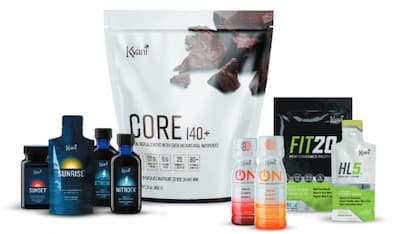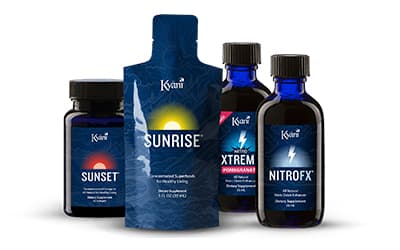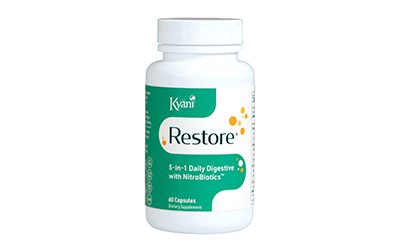What are health Supplements? The answer depends on the type of supplement. A dietary supplement is a manufactured product that contains vitamins and minerals. A dietary supplement is different than a food supplement because it contains artificial ingredients. They can be in the form of liquids, pills, or tablets. There are many types of supplements. You can take one of them for a variety of reasons, including the fact that they are beneficial to your health.
A supplement contains a number of vitamins and minerals and can help improve a person's health. For example, calcium is important for a strong bone structure. Other nutrients, such as folic acid, are important for the health of the heart. A dietary supplement may contain vitamin D to help the immune system.
Most dietary supplement labels state that a particular health supplement does not treat or cure any disease. This is dangerous. Some supplements may even contain prohibited ingredients. In addition, health supplements can be harmful. Often, they do not provide the necessary nutrients to the body. Some can even cause serious side effects. A healthy diet is the only way to avoid a medical emergency. If you're looking for an effective treatment for a specific ailment, a health supplement will be beneficial for you.
What are health Supplements? What are they and how do they work? They are products that can help you maintain a healthy lifestyle. They are made up of a combination of vitamins, minerals, and other substances. When you take a health supplement, you're adding more to your body's overall health. However, don't take it in excess. It's important to note that they are not meant to cure any disease. If you're looking for a safe, effective way to increase your daily vitamin intake, then consider a dietary supplement.
What are health supplements? A health supplement is a dietary product that contains vitamin C and other essential nutrients. A dietary supplement is a good choice if you want to maintain a healthy lifestyle. You may also take one or two dietary supplements for the same purpose. There are many kinds of dietary supplements. The most common ones are multivitamins, and some are even multivitamins. Lastly, you can find a supplement that contains essential amino acids and other necessary nutrients.
What are health supplements? What are health claims? What are the risks? How do they work? Do they contain dangerous substances? They should not be used for weight loss. They must be safe for the consumer. In addition, they should not be consumed during pregnancy. You should be sure that the supplements do not have adverse effects on the body. The product should not be taken more than recommended by a doctor.
What are health supplements? A supplement is a food that has been combined with other substances. There are some benefits to taking them, but they should not be confused with food. These can be a natural remedy for a disease or an antibiotic. It can also improve the immune system. These are the two types of supplements. So, what is a health supplement? The first is a dietary pill, and the second is a vitamin that provides essential nutrients.
A health supplement is a dietary product that contains natural ingredients. A dietary supplement will also contain some natural ingredients. Some are natural and will be found in whole foods. Some people may need a health supplement to treat a chronic disease. But health supplements are not for everyone. Some people may need supplements to prevent a certain medical condition. In some cases, they can only be taken for prevention. The other category is a dietary supplement.
What are health supplements? A health supplement is a supplement that contains vitamins and minerals that are essential for the body. A balanced diet provides all the nutrients required by the body. A healthy diet can help you control your blood sugar level. A healthy diet also has more fiber than a food-based diet. Some people need health supplements for other conditions, such as diabetes. There are many different types of vitamins, so you need to choose the right one for your needs.
It is crucial to consult your healthcare provider before taking dietary supplements. The main reason to take supplemental vitamins is to provide your body with the needed vitamins and nutrients. However, you should only take food supplements if your diet does not provide you with enough of these nutrients. Moreover, you should never use dietary supplements as a substitute for a healthy diet. Many people use food supplements without consulting their physicians.
Dietary supplements are often used to supplement foods and are an excellent way to add additional nutrients to your diet. These products can contain different ingredients such as minerals, enzymes, herbs, and vitamins. They can also be taken in pill or liquid form and can help you reduce your risk of health problems. Generally, it is recommended to eat five to nine servings of fruits and vegetables daily, but this may not always be possible. A good way to meet your daily dietary requirements is to take a supplement with the same amount of food as you do.
There are a variety of dietary supplements available. You can find a comprehensive list of vitamins and minerals that can help you meet your nutrient needs. It is important to note that some of these supplements are not suitable for pregnant women and children. It is important to discuss the risks and benefits of the supplement with your health care provider before taking it. You should also talk to your family doctor or nutritionist before using dietary supplements. You should also discuss the benefits and risks of the supplements with your doctor.
The most important part of dietary supplement use is to carefully read the label of the supplement. While many of these supplements are safe and effective, some of them can have negative effects or even be harmful. Before you start taking any dietary supplement, be sure to check with your doctor. Ideally, you should consult with your health care provider to ensure that it is appropriate for your body and your medical history. In addition, be sure to discuss any concerns you may have with your health care provider.
There are several kinds of dietary supplements. The most popular ones include fat-soluble vitamins. These are considered safe in moderate quantities, but they should only be taken in small doses. They can cause unwanted side effects, so it is essential to follow the instructions of your health care provider. While a good amount of dietary supplements is safe, the most common type is a capsule. Some dietary supplements are also food-based.
There are many health benefits of dietary supplements. In addition to enhancing the health of your body, they also provide you with essential vitamins and minerals. Although dietary supplements do not replace complete meals, they are beneficial for your body. They should not be taken as a substitute for a balanced diet. But, they should be taken with the assistance of a health care professional. When used properly, they can help you avoid adverse effects of a vitamin.
The majority of users of dietary supplements are older and have a higher socioeconomic status. They have lower body mass index (BMI) and are more likely to be physically active. Those who take dietary supplements report that they are not affected by many diseases or are healthy. But, a dietary supplement may be beneficial in some cases. There are also some risks associated with using a dietary supplement.
It is important to know the side effects of dietary supplements. Some people are sensitive to vitamin A or vitamin K. They should avoid taking supplements that contain these ingredients. These can also cause birth defects. If you are breastfeeding, consult with your doctor to determine whether the product is right for you. You should also consider the ingredients of the supplement before starting it. Some products may contain prescription drugs. If you are pregnant, you should consult your healthcare provider before you consume dietary supplements.
Before you start taking any dietary supplement, make sure to consult your doctor first. The dietary supplement you choose should contain the recommended daily allowance of the nutrients that are needed by your body. If you have diabetes, you should not take a dietary supplement unless it is approved by your doctor. You should check the % Daily Value (DV) of the supplements. It is vital to know the nutrient content before you begin.













